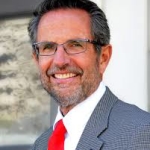
Cut to the evil businessman cackling as he counts his coins while his workers slave away in the salt mines, giving their lifeblood for his riches. 
We all know the story. It’s the common narrative of pop culture movies and TV shows.
But what if this old story isn’t true?
Consider this:
Prior to the Industrial revolution, most of the world lived in poverty. According to research from the World Bank in the year 1000, real GDP per capita was $435 per year (in today’s dollars) 750 years later, in 1750, it was only $667. During the first few thousand years of our existence, for most humans, life was sheer survival. People spent their days scrounging for food and seeking shelter. Very few lived past forty.
In the 150 years after the Industrial Revolution, real GDP rose to $2,113 and by 2013 it was $13,100.
Many people on the planet are still in survival mode, but that’s not because of business. It’s actually the absence of commerce that keeps people impoverished.

Raj Sisodia, the founder of the Conscious Capitalism movement says, “It’s a fact that capitalism is ending poverty on earth.” Now, instead of foraging for food, most of the people on this planet earn enough money to eat and sleep with a roof over their heads.
 I recently spoke at the Global Conscious Capitalism Conference in Chicago, where I was surrounded by a ballroom of business leaders who believe, as I do, that capitalism is a force for good, and they have data to back it up.
I recently spoke at the Global Conscious Capitalism Conference in Chicago, where I was surrounded by a ballroom of business leaders who believe, as I do, that capitalism is a force for good, and they have data to back it up.
Sisodia, the author of seven books including, Conscious Capitalism: Liberating the Heroic Spirit of Business says, “Capitalism is free markets and free people.” As for the claim that business is unethical? Sisodia, one of Ten Outstanding Trailblazers honored by Good Business International says, “Business is inherently ethical because it is based on a voluntary exchange.”
Imagine a thriving society where people have the capacity to care for their families, and spend their days making a meaningful contribution. Can you envision that world existing without free enterprise? Of course not, a thriving community depends upon people buying and selling their wares in a free market.
Yet despite solid evidence that capitalism lifts society, cynicism and distrust in business have increased in recent years.
Why?
I believe it’s because we’ve let a few greedy, self-serving fools, define the narrative. We look at a CEO who makes 400 times his workers’ salary and forget about

CEOs like Kip Tindell, of The Container Store, who makes at most 35 times the average store worker and says, “CEOs and top executives in America are overpaid, relative to the rank-and-file worker. CEOs are important, but not as important as they’re made out to be.” Not surprisingly, for the last 15 years The Container Store has been on Fortune’s 100 Best Companies To Work For.
We make movies about greedy investment bankers while real life leaders like Bob Chapman, Chairman and CEO of Barry-Wehmiller

Companies, a $2 billion global organization, achieve a 20% compound growth rate over 20 years by focusing on “Truly Human Leadership”. Chapman’s principles include – Look for the goodness in people and ask no more or less of anyone than you would of your own child.
The takers are not the norm. They’re the outliers. It’s time to stop letting a few greedy fools define the story of business. Capitalism gives
more than it takes, and we need to win that story.